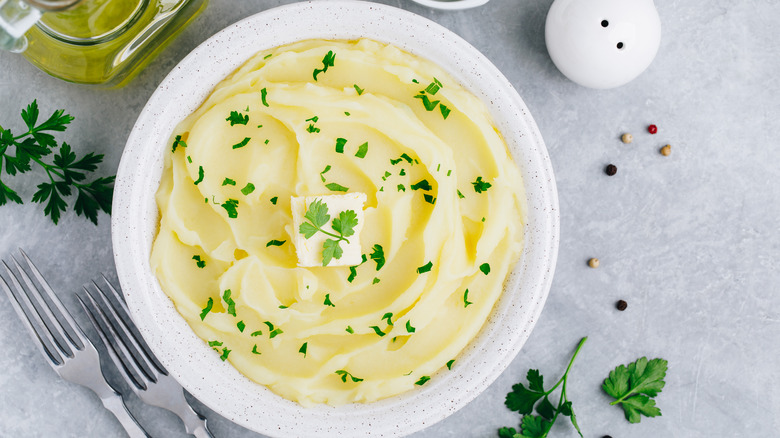Best type of potatoes for mashed potatoes
Everyone loves mashed potatoes, especially when served with turkey during family feasts throughout the year. They’re the perfect side dish for almost any protein, and they’re just plain delicious. Add some butter, garlic, cheese, and bacon, best type of potatoes for mashed potatoes you have one flavorful side dish. The question remains: What is the absolute best type of potato for mashed potatoes?
Making mashed potatoes isn’t a huge feat if you keep a few things in mind when cooking the classic comfort food fave, but which potatoes are best? According to Martha Stewart, Yukon gold potatoes have yellow skin and create creamy mashed potatoes due to their medium-starch content. They also absorb less water, making them less likely to become gummy in texture. Yukon’s rich, buttery flavor makes for creamy yet dense mashed potatoes that will please any crowd.
If pillowy-soft mashed potatoes are more your style, The Spruce Eats recommends that Russet potatoes should be your go-to. When you select your potato preference, there are a few tips you should keep in mind when prepping, cooking, and mashing your potatoes. Remove dirt, debris, and bacteria from the potatoes by washing the skins. The FDA recommends washing all produce first before preparing or eating it. Cooking potatoes causes a chemical reaction in the structure of the potato’s starch grains.

According to Idaho Potato, the starch is composed of pectin and starch molecules linked together to form the grain. As the potato cooks, the grains begin to swell and absorb the surrounding moisture in and around the potato. Cover your potatoes with cold salted water and slowly bring them to a simmer, as Loaves and Dishes suggests. The gradual temperature increase will ensure that the potatoes cook evenly. When draining the potatoes, remove all of the water.
Thoroughly draining reduces the chances of mushy mashed potatoes. As you add softened butter and seasonings, Lacademie says to re-add liquid in small amounts to moisten the potatoes. Mashing the potatoes can be done with an old-fashioned potato masher or a fork. Keep in mind that, according to Serious Eats, the starch granules in the potatoes have softened and expanded, so over-mashing or using a food processor, for example, releases even more starch.